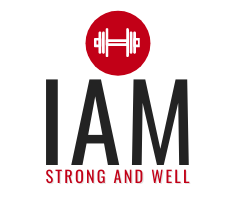Soya: the bean health issues
Soy beans, with their many uses and culinary forms, have become an important nutritional staple for many vegans and vegetarians. It is used in non-dairy milks, yoghurts and cheeses, baby formulas, soy drinks, protein bars, frozen desserts, as textured protein, soy sauce, veggie burgers and sausages, as well as tofu and bean curd.
However, after quite an easy early ride in the media during which soya made huge market gains as a healthy and natural food, several recent press articles have begun to question the virtues of soy beans.
With strong financial interest weighing in on both sides of the argument, it can be confusing for the consumer to get to the truth behind the media hype. The well funded United Soybean and the Soyfoods Association of North America leads the soya bean public relations crusade, whilst allegations fly that several critical institutional research studies were funded by the competitor meat industry with its not-so hidden agenda.
Here, we take a look at the soy health battleground, laying out both sides of the arguments, and review where current legislation lies in relation to soy food and health.
Background
The soybean was first used as a food upon the discovery of fermentation techniques, some time during the Chinese Chou Dynasty (1100-600 BC). The first soy foods were fermented products like tempeh, miso and soy sauce. Quite some time later, possibly around 200-100 BC, the Chinese discovered tofu or bean curd and the use of fermented and precipitated soya products soon spread to other parts of Asia, most notably Japan, Korea and Indonesia.
Soy proteins contain all the essential amino acids in appropriate ratios needed for human growth and body maintenance, and are readily digestible. The FAO/WHO Expert Consultation on Protein Quality determined that soy protein and egg white have the maximum score of 1, followed by milk and meat proteins. Soy protein is “complete”, which means it has all of the amino acids needed in the human diet and is the only plant source of complete protein.
The health claim battleground
Here’s a review of the main health issues regarding soya:
Hormonal balance –
Soya beans contain phytochemicals, the most controversial of which are isoflavones. Isoflavones are described as phyto-estrogens (plant oestrogens) because their structure and metabolism resembles that of human estrogens. Oestrogen is a natural hormone important in the sexual development of both male and female humans.
Concern: In studies conducted on hamsters and rats, it was observed that the consumption of isoflavones caused hormonal imbalance and significantly accelerated the onset of puberty in the rodents. These findings might be relevant to humans, and are especially concerning for babies who are fed soy-based formulae which contain high dosages of phyto-estrogens.
Oestrogen is linked with breast cancer and it is posited that soy consumption might increase the risk of breast cancer in women. The French Centre for Cancer Research, now advises against soy for women who are at risk for breast cancer and for those who already have it.
Answer: A critical review of breast cancer studies suggests that adult consumption of soyfoods is not likely to result in adverse outcomes. Plant oestrogens are much weaker than naturally circulating human estrogens and they have approximately 1/1000 of the biological activity of synthetic oestrogens. Soy foods containing isoflavones may provide a variety of health benefits since isoflavones provide relief from certain menopausal symptoms and lowers the risk of certain cancers, osteoporosis and heart disease. Comparisons of adults fed soy formula and adults breast-fed as infants indicate no significant differences in growth, maturation, fertility or other reproductive outcomes.
Studies using rat models often add purified isoflavones at levels much higher than those found in human diets. Research indicates that isolated isoflavones do not always have the same action as isoflavones found in their natural state as part of soy beans. Furthermore, human beings and rodents are entirely different animals and any noted affects on tested rodents often do not lead to the same results in humans.
Mineral absorption –
Concern: Soybeans contain higher levels of phytic acid than any other bean. Phytic acid is known as an anti-nutrient since it can block the absorption of certain minerals, including magnesium, copper, calcium, iron and especially zinc. It has been noted that people in 3rd World countries who have a high consumption of soy also frequently have deficiencies in these minerals. This may also be a health concern with regard to babies who are using soy-based infant food formulae. Adding to the high phytic acid problem, soy beans are highly resistant to phytate-reducing techniques such as long and slow cooking. Only a long period of fermentation will significantly reduce the phytate content of soy beans.
Answer: Mineral deficiency in the 3rd World could be attributed to a whole range of other factors and nothing related to soy consumption. Other studies show that when people’s diets are adequate in zinc, iron, and calcium, phytates do not present a problem with mineral bioavailability.
Protein and oxygen absorption –
Concern: Soya beans also contain enzyme-inhibitors that block the uptake of trypsin enzymes which the body needs for protein digestion. These anti-nutrients can cause serious gastric distress, reduce protein digestion and can lead to chronic deficiencies in amino acid uptake. In addition, soy beans also contain hemagglutinin, a clot-promoting substance which causes red blood cells to cluster together, reducing proper oxygen absorption for distribution to the body’s tissues.
Although the act of fermenting soybeans does de-activate both hemagglutinin and trypsin inhibitors, cooking and precipitation (the process used to produce tofu) do not completely eliminate them.
Answer: Trypsin inhibitors are present in many other plant products including raw legumes, cereals, potatoes, and tomatoes. They can reduce the efficiency of digestion of proteins but are mostly destroyed when beans are heated during cooking to make soy foods. The soy industry believes that small quantities of trypsin inhibitors are not detrimental to health but rather they may have beneficial effects in reducing tumour growth and preventing the spread of some cancers.
Thyroid function –
Concern: The consumption of a soy-rich diet can lead to problems associated with the thyroid, especially goitre and hypothyroidism in infants and thyroid cancer. The Israeli Health Ministry issued a public warning against the consumption of soy in children and infants, and the French Centre for Cancer Research now recommends no children under the age of 3 should eat soy.
Answer: In healthy adults, consuming soya foods appears to have no negative effect on thyroid function and may in fact reduce the risk of thyroid cancer. It is accepted that soy could be a risk factor for goitre in people with low iodine intake, however, screening for thyroid dysfunction will identify these individuals. Reports of goitre and hypothyroidism in babies fed soy based formulae in the 1960s predate soy based formulas supplemented with iodine. Since the 1960s, approximately 18 million US children have grown up on soy formula with only 12 cases of abnormalities in infants possibly traceable to soy formula. Today, the American Academy of Paediatrics recognises iodine enriched soy-based baby formula as a safe and effective alternative for babies to provide appropriate nutrition for normal development and growth.
Soy processing –
Concern: The production of soy protein isolate requires several intensive industrial processes, including hexane, acid and alkaline washes, precipitation, and exposure to high temperatures and pressures in order to produce the textured vegetable protein finished product. Nitrite carcinogens and a toxin called lysinoalanine are formed during the processing.
Answer: Modern processing removes undesirable constituents by fractionation or extraction. All of these treatments can increase the digestibility of soy proteins, remove indigestible sugars, inactivate enzymes that affect flavour, and prevent undesirable changes that may occur during storage.
Additives –
Concern: Numerous artificial flavourings, particularly monosodium glutamate, are added to soy protein isolate and textured vegetable protein products to mask their strong natural taste and to impart the flavour of meat.
Answer: The addition of flavourings, preservatives and other additives in soy based products is no different to their use in other foods. If customers prefer soy products that are additive-free then they can seek out those producers that use organic soy beans and do not use additives.
Reduced heart disease –
Claim: In 1999, the US Food and Drug Administration (FDA) accepted a health claim that links the consumption of soy protein that is low in saturated fat and cholesterol with a reduced risk of coronary heart disease. The FDA reviewed hundreds of scientific research studies and public comments before granting the soy and heart disease health claim. The FDA found no credible evidence that soy causes harm when consumed by humans. The FDA approved health claim recommends 25 grams or 4 servings of foods with 6.25 grams of soy protein daily to lower cholesterol significantly.
Counter-claim: Much of the scientific evidence of soy’s cholesterol-lowering properties is drawn largely from meta-analysis. Meta-analysis is a review and summary of the results of many clinical studies on the same subject. Use of meta-analyses to draw general conclusions has come under sharp criticism by members of the scientific community because researchers that substitute meta-analysis for more rigorous trials risk making faulty assumptions and drawing wrong conclusions.
It was also noted from the results that significant lowering of cholesterol only took place in individuals with high cholesterol levels. No significant change was noted for people with normal levels of cholesterol.
The verdict
So with all the claims and counter-claims, accusations and explanations who should we be listening to and whose view do we trust?
If you think like I do then you’ll know that any government health approval is quite meaningless and available to the highest bidder. The best advice is to keep abreast of the latest developments and health news, trusting those whose views have already established credibility in your life.
No one food is perfect. What seems certain is that soya is a good source of protein and can reduce cholesterol levels when they are high. Other claims, both positive and negative, remain unproven. We all know that diet and lifestyle impact our health and any one food will never be the panacea of all health and disease.
Enjoy all things in moderation, don’t think that you must consume soy morning, noon and night. Consume a broad range of fruit and vegetables, knowing that the raw and natural food state is usually best. As for soy-based products, choose organic whole and fermented soy products like edamame, miso, tofu and tempeh (my personal favourite). If you enjoy processed veggie-burgers and sausages etc, then choose brands such as Fry’s that use a blend of vegetable and wheat proteins and only a low percentage of soy in their mixes (5-8% in Fry’s case according to Tammy Fry).
The British Nutrition Foundation produced a comprehensive briefing paper in 2002 which looked at the various health scares and claims surrounding soya foods. It concluded that “soy beans are a useful source of a range of nutrients, and the beans themselves and foods derived from them can be useful components of a healthy diet.”
To conclude, one might like to remind themselves of our hospitals and note how many people are dying from diseases directly linked to eating meat and dairy products. I have yet to hear of anyone officially diagnosed as being hospitalised from eating soya!

